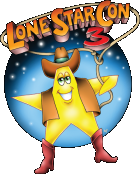Once upon a time, there was literature. That was it. Everything was just literature. At some point, stories became so varied that they branched into distinctive categories. Whether this was something brought on by readers gravitating to certain types of stories or publishers categorizing said stories to make it easier for readers to find, or some other reason all together, I don’t know. But, over the last hundred years, fiction split into the convenient labels we know today.
This split isn’t without its controversy, though, and has created a very real divide between what’s referred to as literary fiction and genre fiction. When most people think of the difference between the two, many think of overly-serious literary writers looking down at genre writers as hacks, while genre writers run off with all the money. Tempers can run high when it’s discussed. Stephen King famously almost got into a fist fight over the very idea that genre fiction was somehow of less value than literary fiction.
But, what’s the big deal, really? What are the actual differences between the two?
When I was in college I took a creative writing class, where the teacher asked us that very question. One of my fellow students, who was a literary writer, said that literary fiction was character driven, while genre fiction was plot driven. Now, anyone who reads Joe Abercrombie knows that’s a false assumption. Actually, that student was keying to something very real, he just didn’t recognize it for what it was. It has little to do with character and plot, really, and all to do with structure. Genre fiction is built on structure. Literary fiction isn’t.
We’ve mentioned using scriptwriting as a basis for writing novels more than once. Pyr editor, Lou Anders, talks about the Hollywood formula all the time. Why? Because the Hollywood structure works. Certain beats happen at certain moments, and the story resonates better for the audience. It works. Readers like the structure, and every genre has its own. Romance, for instance, is famous for its very strict story structure — and it’s the highest grossing genre of them all.
Literary fiction, on the other hand, has a more organic approach. It lacks the structure that makes genre fiction so easily digestible for readers. Funnily, my aforementioned writing instructor confessed that she was halfway through a story when she realized she didn’t have a story arch. That’s a problem few genre writers will ever have. But, one of the things this allows for literary fiction is experimentation. You get weird little stories that are all dialogue or written in stream of consciousness or told backwards. Playing with technique and form is much easier when you don’t have to worry about story beats hitting at a certain moment. For more adventurous readers, this is great, but, like I said before, people like structure, and this may be one of the big reasons genre fiction is more lucrative.
The other real difference between the two, has to do with subject matter. Literary fiction tends to be rooted in real life far more than genre fiction. Sometimes, a little too much. I’ve heard more than one person disparage literary fiction as depressing and oppressive. At the same time, it explores life in a way that genre structure won’t allow. The killer is usually found out in the end of a mystery. The hero usually beats the evil sorcerer in an epic fantasy. The boy usually gets the girl at the end of a romance. Literary fiction doesn’t flinch from the reality that life doesn’t always end well for the good guys, if there even are goods guys involved.
Genre fiction, on the other hand, is often thought of as escapist because it deals with situations that you won’t find in everyday life. Me, I think that’s an over simplification. In truth, all fiction is escapist, even if there are no spaceships or serial killers involved. Even if you read only literary fiction, you’re not reading your own life, so it’s still an escape. If it weren’t, it would be non-fiction.
So, are you one of those writer’s who stresses over the decision to write literary or genre fiction? The differences above are, of course, generalizations. There are lines blurred everywhere. There are plenty of experimental genre stories that look at real life, especially in Science Fiction. There’s plenty of fantastic elements in literary fiction, too. And anyone saying that genre fiction makes more money really needs to look at how much genre fiction there is out there to see how easily that wealth is swallowed by the sheer magnitude of product. Even if there are more readers, it’s no easier to make it big. Besides, literary fiction has Oprah Winfrey on its side. Neither path is a surefire path to financial freedom, but neither is a surefire path to destitution either.
To me, choosing between literary and genre fiction is like choosing between landscape and abstract painting. They both have their detractors and their supporters, but their creators are also both artists who follow a craft they love. Our art chooses us just as much as we choose it. We write what we write because that’s what we feel the need to do.
So, really, in the end, it doesn’t matter which side makes more money, does it? If you feel the need to write literary fiction, you won’t find any happiness writing techno-thrillers, and your readers won’t enjoy reading them, either. Stick with your passion, even if it means you’re still stuck at a day job. You’ll never go wrong.


